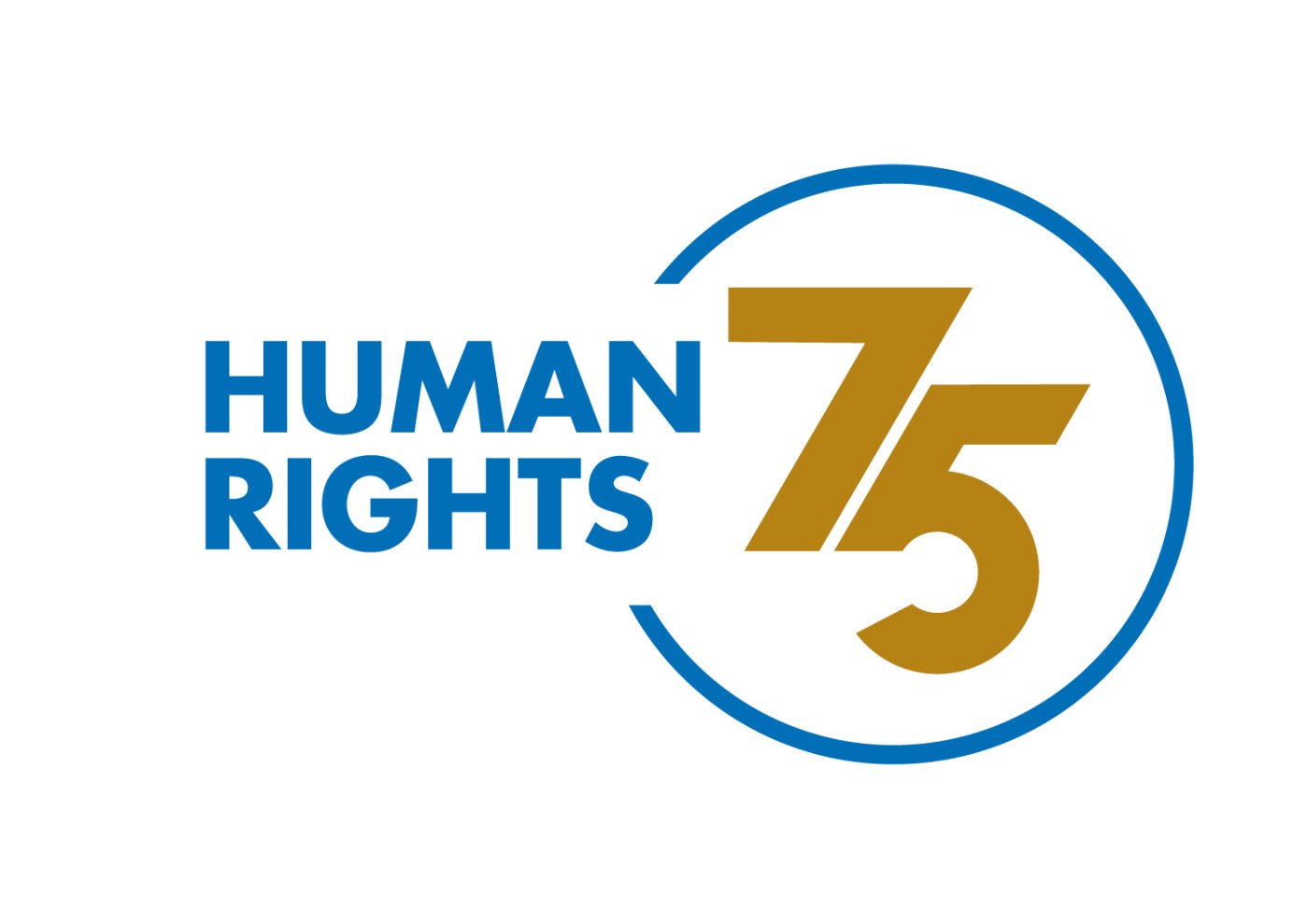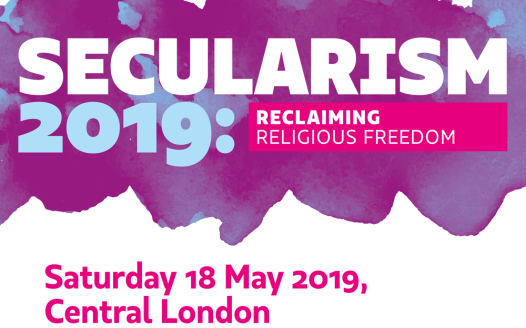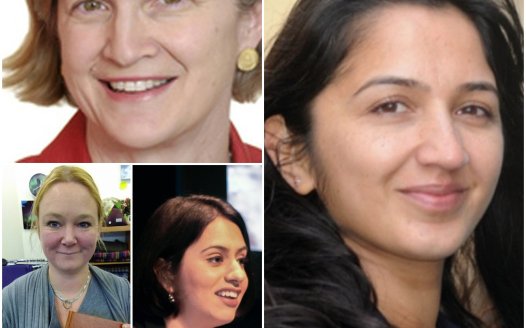The universality of human rights needs defending
Posted: Thu, 7th Dec 2023 by Stephen Evans
Seventy-five years on from the adoption of the Universal Declaration of Human Rights, its promise of freedom and equality remains a distant dream for those living under religious rule, says Stephen Evans.
This Sunday will mark the 75th anniversary of the Universal Declaration of Human Rights (UDHR). Created in response to the horrors of the Second World War, the Declaration is regarded by some as one of humanity's greatest achievements. Its articulation of a common vision of respectful and peaceful coexistence has underpinned human rights treaties across the globe and inspired many individuals and policymakers to work toward a better world.
One of the key principles of human rights is universality – the idea that human beings are endowed with equal rights simply by virtue of being human, wherever they live and whoever they are, regardless of their status or any particular characteristics. Critics of the notion of universality often dismiss such rights as 'western values' emanating from a European, Judeo-Christian or Enlightenment heritage. The concept of universality is receiving increasing pushback, particularly from religious groups who want to redraw the boundaries of human rights in line with 'cultural and intellectual traditions'. But as the former UN Special Rapporteur on freedom of religion or belief Ahmed Shaheed has articulated, claims that human rights are a western concept fail to recognise the major influence of non-western states in the drafting of the UDHR, and fall flat when looking back at historical global support for human rights.
Yet one thing is certain: human rights are not universally applied today. One of the biggest barriers to the flourishing of rights is religion, particularly where it enjoys proximity to political power. It's no coincidence that the world's theocracies – Afghanistan, Iran, Mauritania, Saudi Arabia and Yemen, for example – are amongst the world's worst human rights violators. Freedom of expression has been a particular bugbear of majority Muslim nations. Between 1999 and 2010, a coalition of 57 Islamic nations known as the Organisation of Islamic Cooperation (OIC) launched a concerted effort to limit free speech around religion globally. The OIC pushed 'defamation of religion' resolutions at the United Nations, arguing that Muslims were facing growing intolerance and discrimination, which they described as 'Islamophobia'. But their attempts to curtail speech were more about protecting religion than individuals.
The campaign by Islamic nations faced opposition from western democracies, which argued that 'defamation of religion' resolutions would violate the right to freedom of speech, thought, conscience and religion. Eventually the defamation approach was abandoned but attempts to restrict free speech around Islam continue through the contested concept of 'Islamophobia' and the utilisation of 'hate speech' resolutions at the UN to protect religious feelings.
Freedom of expression is far from the only human right that vexes religious fundamentalists. Since Afghanistan fell back into a theocratic government, the Taliban have imposed their strict and brutal interpretation of Islam, flagrantly flouting numerous human rights principles with total disregard for international law. According to Human Rights Watch, since taking power the Taliban have imposed rules that comprehensively prevent women and girls from exercising their most fundamental rights to expression, movement, and education, and affect their other basic rights to life, livelihood, health care, food and water. They have prohibited women from travelling abroad or going to their workplace without a male family member accompanying them, and barred them from many jobs. Almost all girls are denied access to secondary school. This amounts to the almost total exclusion of half the population – women and girls – from public life.
In Iran, where Islamic clerics brutally impose their religion on the population, women have been at the forefront of movements to see the suffocating and repressive regime replaced with a free, open, and modern secular state. The most recent wave of protests led by women and girls chanting "Woman, Life, Freedom" were sparked by the death of Mahsa Amini, who died in police custody following her arrest for her alleged non-compliance with the country's Islamic dress code, which mandates women to wear the hijab in public places.
It's been a rude awakening for the mullahs who claim so called 'western' values aren't universal. They're finding out that liberal values of separation of religion and state, free expression, equality and freedom of and from religion are more universal than they thought. The regime's response has been mass arrests, extreme and excessive violence and public executions. More than 500 people, including 71 children, were killed in the protests
Those living under theocracies understand the need for secularism better than most. The concept of universality resonates most strongly with those who are marginalised or experience discrimination. Children, LGBT people, religious minorities, and women bear the brunt whenever religious fundamentalists can impose their will on societies.
The 2022 US Supreme Court ruling in Roe v Wade was a wake-up call to the global threat conservative religious views pose to women's reproductive rights. Closer to home an ascendant religious right is eroding reproductive freedoms in Italy and Poland. The UK is not immune from attempts to restrict women's ability to have legal abortions. Three 'pro-life' Private Members' Bills are being introduced to the House of Lords in a bid to do just that.
LGBT people's human rights are being restricted by religiously motivated policies, laws and practices that discriminate or fuel prejudice against them. Children's education is impeded by attempts to indoctrinate. The Convention on the Rights of the Child declares that children's right to education should be directed to the 'preparation of the child for responsible life in a free society'. Yet just as hard-line Taliban leaders push for a complete ban on girls' education, fundamentalist religious groups in the UK run unregistered schools where children are denied a secular education and indoctrinated only with religion.
Persistent attempts by religious fundamentalists to impose their interpretation of doctrine on others demonstrates the necessity of secularism. Our mission is to build a freer, fairer and more tolerant society where people are free to follow the beliefs they choose and where no particular belief systems are privileged or imposed. Only by resisting religious power-seeking can we ensure human rights aren't overridden on the grounds of religion, tradition or culture.
Believers and nonbelievers alike who want to protect and promote human rights should embrace secularist principles to fend off religious challenges that would fatally and fundamentally undermine them. And we need, more than ever, to protect the fundamental principle that all rights are universal. Let's make sure the 75th anniversary of the UDHR sees renewed efforts to give effect to human rights on the ground for everyone, everywhere.
What the NSS stands for
The Secular Charter outlines 10 principles that guide us as we campaign for a secular democracy which safeguards all citizens' rights to freedom of and from religion.











